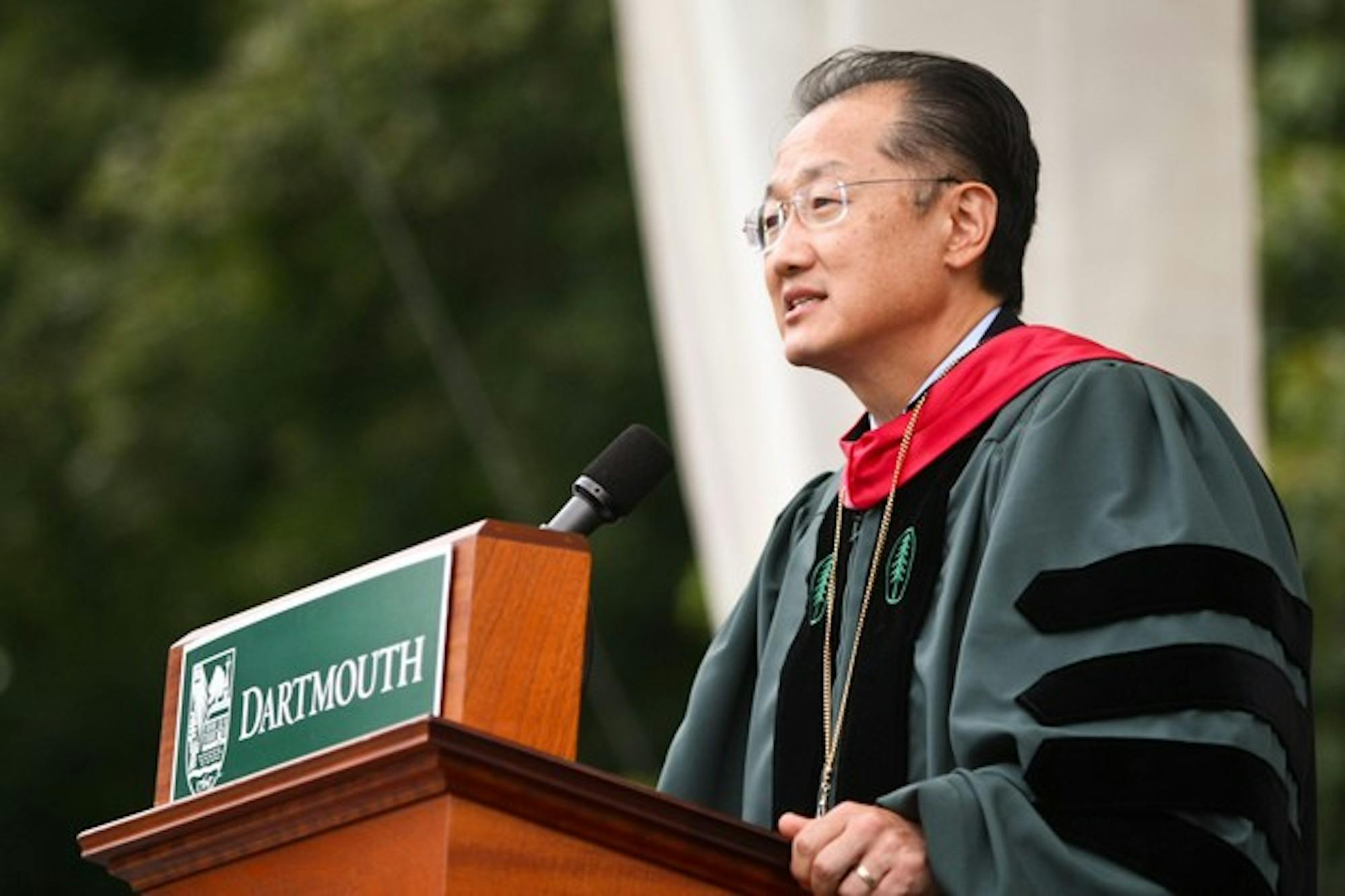Kim will take leadership of the international financial institution designed to reduce poverty trough loans to developing countries after current Bank President Robert Zoellick, who announced his resignation in February, steps down on June 30, according to the Associated Press.
His confirmation to the position comes despite criticism from some observers that his relative lack of economic experience made him an inferior candidate and amidst pressure from leaders in many developing nations that the head of the Bank who has always been American since the Bank's inception in 1944 should come from amongst their own.
U.S. President Barack Obama announced Kim as his nominee for the position on March 23, citing the need for a "development professional to lead the world's largest development bank." Since then, Kim has embarked on a worldwide listening tour in Latin America, Asia and Africa to meet with World Bank stakeholders and rally support for his candidacy.
The third candidate for the position, Columbia University professor and former Colombian Finance Minister Jose Antonio Ocampo, dropped out of the race on Friday.
On Friday, Russian Finance Minister Anton Siluanov announced that Kim's "considerable professional qualities, as well as his experience and knowledge," made him worthy of Russia's endorsement for the position, as well as the nation's support during voting by the Bank's board of directors, according to Reuters. Russia joined the United States, Mexico, Canada, Japan, South Korea and European nations on the list of those backing Kim's candidacy.
Because the United States has the largest percentage of the vote of any single country and Europe represents the organization's largest voting bloc, the World Bank has always been led by an American, raising complaints from economists and leaders in the developing world. In 2010, the United States joined other Bank shareholder nations in pledging transparent, merit-based processes in the selection of the next president, according to CNN. Part of this transparency involved interviews between the candidates and the Bank's board, but many say the interviews remain more of a formality than a vetting process to determine the best nominee.
Okonjo-Iweala told reporters on Monday that the Bank's decision was not based on merit and instead relied on "political weight and shares," according to The Guardian. While she expected Kim to get the job, Okonjo-Iweala said her candidacy has shown the viability of candidates from developing country to campaign and run the "entire architecture" of the Bank.
Kim's work prior to assuming the College presidency in 2009 was largely in the public health sector. He graduated from Brown University with a major in human biology in 1982, earned a medical degree from Harvard Medical School in 1991 and completed his doctorate in anthropology at Harvard University in 1993. He served as the chair of the department of global health and social medicine at HMS and has worked extensively on research about treatment for drug-resistant HIV/AIDS.
He is the co-founder of Partners in Health, a non-profit organization working to improve health care access in low-income communities worldwide. In 2004, the World Health Organization chose Kim to head its "3 by 5" program, which aimed to treat three million HIV/AIDS patients by 2005.
But his comparative lack of economic experience concerned some experts, leading a group of 39 former World Bank managers to write a letter to the Bank's board endorsing Okonjo-Iweala, according to Bloomberg News.
In his interview with the Bank's board, Kim tried to assuage concerns about his readiness for the job, insisting that he would "ask hard questions about the status quo" and "challenge existing orthodoxies," according to a U.S. Treasury Department press release. Kim said his "global orientation" gained from work with PIH and the WHO would make him attuned to the needs of developing nations.
South African Finance Minister Pravin Gordhan said the decision shows the need for reform to both the Bank and the International Monetary Fund in order to increase transparency and lessen the control of the "established powers" over the organizations' decision-making processes, according to the AP.
Dartmouth's Board of Trustees has said it will announce its pick for the College's interim president within the day or days immediately following Kim's announcement. Chairman of the Board of Trustees Stephen Mandel '78 said the confirmation of Kim's nomination would begin the search process for the College's 18th president.




